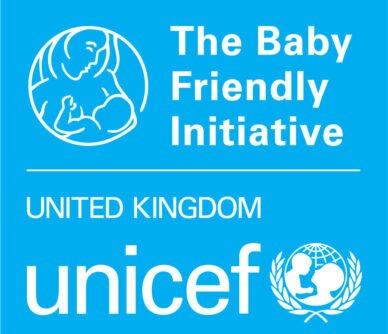Research on mental health and emotional and cognitive development
Human milk: From complex tailored nutrition to bioactive impact on child cognition and behaviour
This narrative review presents a complex picture of the current state of knowledge on the role of human milk and its components in the development of neurological processes and cognitive performance in infants. It offers practical and theoretical recommendations to advance research in this field, including innovative directions for future studies on cost implications and current support structures with the aim of inspiring social and political support for improvements in breastfeeding opportunities.
Weerth, C. et al. (2022). Human milk: From complex tailored nutrition to bioactive impact on child cognition and behaviour. https://doi.org/10.1080/10408398.2022.2053058.
To what extent does confounding explain the association between breastfeeding duration and cognitive development up to age 14? Findings from the UK Millennium Cohort Study
This study evaluates whether the association between breastfeeding duration and improved childhood cognitive development can be explained by socioeconomic position (SEP) and maternal cognitive ability. The study uses multivariable linear mixed-effects models to compare verbal and spatial cognitive scores at ages 5, 7, 11, and 14 with reported breastfeeding durations. At all ages, longer breastfeeding durations were associated with higher cognitive scores after accounting for the child’s own characteristics, however the effect was modest. Adjustment for SEP approximately halved the effect sizes.
Pereyra-Elias, R., Quigley, M., Carson, C. (2022). To what extent does confounding explain the association between breastfeeding duration and cognitive development up to age 14? Findings from the UK Millennium Cohort Study. https://doi.org/10.1371/journal.pone.0267326
Preterm nutrition and neurodevelopmental outcomes
Whilst survival of preterm infants has been steadily improving due to advances in perinatal and neonatal medicine, it does not reach the ideal target level of the normal fetus of the same gestational age. Postnatal weight gain is also often not achieved because extrauterine growth has higher energy requirements than intrauterine growth, due to the intensive care environment, illness and inadequate nutrition. This review focuses on the role of nutrition in preterm neurodevelopment, including the primordial importance of human milk and oligosaccharides and how these help to prevent neonatal complications and contribute to increased preterm survival.
Skinner AM, Narchi H. Preterm nutrition and neurodevelopmental outcomes. World J Methodol. 2021 Nov 20;11(6):278-293. doi: 10.5662/wjm.v11.i6.278. PMID: 34888181; PMCID: PMC8613713.
A Future for the World’s Children?
A major new report commissioned by the World Health Organization (WHO), Unicef and The Lancet details new risks and solutions related to child health and wellbeing. This commission took more than two years to develop and reflects combined knowledge from 40 child health experts from around the world. The importance of close and loving relationships between parents and babies was evidenced in the report, highlighting the effects of early nurturing on later development in children.
Clark H et al. (2020), A future for the world’s children? A WHO-UNICEF-Lancet commission
Early breastmilk exposure modifies brain connectivity in preterm infants
Preterm infants are at increased risk of alterations in brain structure and connectivity and subsequent neurocognitive impairment. This study explores the extent to which breastmilk exposure is associated with improved markers of brain development and connectivity in preterm infants at term equivalent age. Findings from an analysis of data on 47 preterm infants’ neonatal breastmilk exposure and brain MRI suggests that breastmilk feeding in the weeks after preterm birth is associated with improved structural connectivity of developing networks and greater fractional anisotropy in major white matter fasciculi.
Blesa M, Sullivan G, Anblagan D, Telford EJ, Quigley AJ, Sparrow SA, Serag A, Semple SI, Bastin ME, Boardman JP. Early breast milk exposure modifies brain connectivity in preterm infants. Neuroimage. 2019 Jan 1;184:431-439. doi: 10.1016/j.neuroimage.2018.09.045. Epub 2018 Sep 18. PMID: 30240903.
Older research



